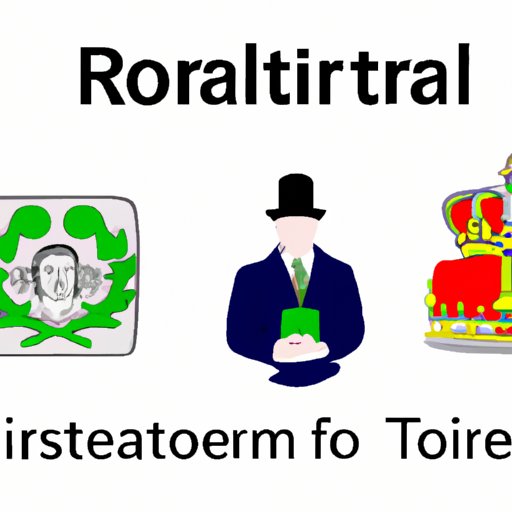Introduction
Ireland has a long and complicated history with the British monarchy. Home to a decades-long armed struggle to attain independence from the United Kingdom, Ireland has experienced repeated British invasions and the subsequent erasure of its political and cultural identity. As a result, many Irish people feel strongly opposed to the very notion of monarchy. In this article, we’ll explore the historical, cultural, and political factors that contribute to this sentiment, and examine alternative models of governance more in line with Irish values.
Historical Context
To fully understand Ireland’s anti-monarchy sentiment, it’s necessary to delve into its long history of colonization by the British. The first British invasions of Ireland began in the 12th century, with Anglo-Norman forces seizing the country’s southeast. Over the course of several centuries, British forces continued to exert control over Ireland, taking its land and resources and enacting oppressive laws such as the Penal Laws. These laws, which were in effect from the late 17th century until the early 19th century, were designed to ensure that Roman Catholics – the religious group that made up the majority of the Irish population – were oppressed and denied many basic rights.
During the 19th and early 20th centuries, Irish nationalists worked to gain independence from Great Britain. This included the Easter Rising of 1916, an armed rebellion in Dublin that ultimately failed but is seen as a pivotal moment in Irish history. Throughout this time period, anti-monarchy sentiment grew as a rejection of British rule and its symbols, including the monarchy.
Cultural Differences
Beyond political oppression, there are cultural differences that have exacerbated the divide between Ireland and the monarchy. For example, the Queen’s religion – Anglicanism – is vastly different from Ireland’s predominantly Roman Catholic faith. Additionally, Irish culture is deeply rooted in language, music, and literature, which are seen as vital components of the country’s identity. In contrast, the British monarchy is often seen as a symbol of uniformity and assimilation, rather than a source of cultural pride.
The Troubles
Decades of sectarian conflict in Northern Ireland, commonly referred to as “The Troubles”, further hardened attitudes towards the British monarchy and its involvement in Irish affairs. During this period, the monarchy was seen as biased towards unionism, the belief that Northern Ireland should remain a part of the United Kingdom. This created an impression among many Irish people that the monarchy was actively working against their best interests.
Irish Republicanism
Traditional Irish Republicans have historically been vehemently opposed to the monarchy, viewing it as a symbol of British imperialism and domination. The ideology of Irish Republicanism is rooted in the belief that Ireland should be its own country, free from foreign rule. This sentiment resonates deeply within Irish political movements today, including Sinn Fein, the party currently in power in Ireland.
Religious Divide
Religious conflict has played a significant role in shaping Irish attitudes towards the monarchy. The historical sectarian divide between Catholics and Protestants in Northern Ireland has created a deep mistrust of British authorities, including the monarchy. The monarchy’s perceived alignment with Protestantism and unionism, as well as the memory of the Penal Laws, has stoked historical grievances, which have been passed down through generations.
Modern Perception
Looking at contemporary Irish society, it’s clear that the monarchy is viewed with some suspicion. While there is not widespread hatred of the institution, many see it as outdated and irrelevant to modern political and social issues. Particularly in light of Brexit, the monarchy – as a symbol of British politics – has become even more alienating for many Irish people.
Alternative Models
For those who oppose the monarchy, it’s natural to ask what alternative models of governance might be more appropriate for Ireland. One such model is a republic, where a president is elected as head of state. This would provide a symbolic break from British rule and would allow for a more democratic form of government that is more directly accountable to the people. Another possibility is a confederation of states, in which Ireland would function more as a federation of independent regions or states. This would allow greater regional autonomy and could help to foster a stronger sense of national identity.
Conclusion
Ireland’s anti-monarchy sentiment is rooted in its complex history of British colonization and oppression. While cultural differences, religious divides, and contemporary political issues also play a role, there is no doubt that Ireland’s fraught history with British rule has created lasting, deeply-felt mistrust and frustration with the monarchy. Moving forward, it’s essential that the concerns and aspirations of Irish people are taken into account when considering the future of governance in Ireland. By seeking alternative models of governance that reflect Irish values and priorities, we can help to build a society that is democratic, just, and truly representative of the will of the people.
